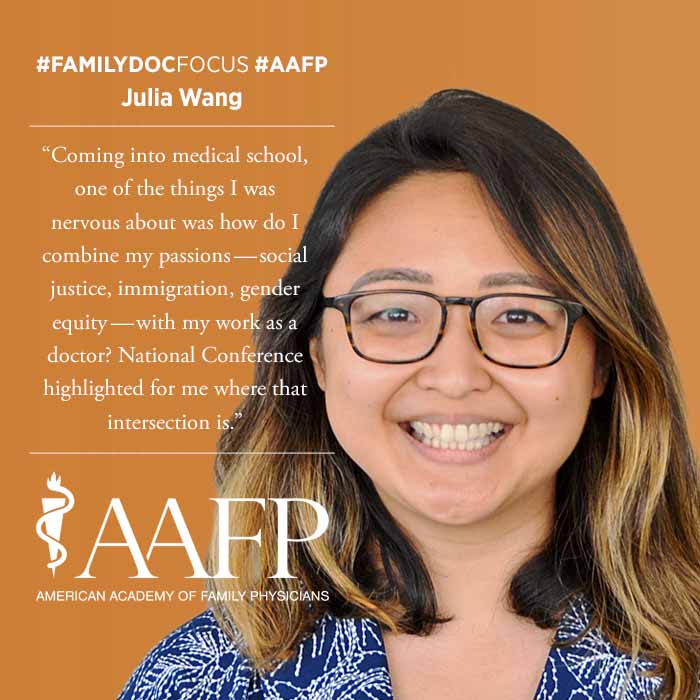Student Leader Found Intersection of Medicine, Social Justice
September 09, 2019 01:46 pm David Mitchell – Julia Wang can empathize with immigrants struggling to navigate the complex U.S. health care system because that is how her own life story began.
Wang's father was an international graduate student at the University of Nebraska when her mother traveled from China to visit him. During that visit, the Tiananmen Square protests erupted in Beijing and eventually spread to hundreds of other cities in an uprising that lasted 50 days and left thousands injured and an untold number of people dead.
Her parents decided to stay in the United States. Wang's mother later got pregnant, but the couple had no health insurance and little money and her mother did not yet speak fluent English.
"She was connected to a free clinic with primary care doctors who worked hard to provide appropriate care," Wang said. "I don't know where she or I would be without them."
Wang is now at the Keck School of Medicine at the University of Southern California, Los Angeles, where she is a fourth-year student and a rising star in family medicine.
USC isn't traditionally known for emphasizing primary care, but Wang found a family medicine mentor at Keck, professor Jo Marie Reilly, M.D., M.P.H., who is working hard to change that.

"Dr. Reilly is so good about making it clear that family medicine can be whatever you make it to be," Wang said. "She picked up on the fact that I had a passion for underserved populations, and family medicine is where a lot of the work on health care equity is happening."
Wang, who already had taken on leadership roles in social justice causes as an undergraduate, served as co-founder and co-president of a medical student group at USC that created and implemented a new orientation program for incoming medical students that focused on the importance of social determinants of health and social justice within medicine. The group also successfully campaigned for improvements in the Keck curriculum to address biases in medicine.
Now Wang is taking her leadership efforts to the national stage. She was an alternate student delegate to the AAFP Congress of Delegates last year, and she will serve as a student delegate when the COD meets Sept. 22-25 in Philadelphia. Wang said she is excited about working with the Academy because of its commitment to ensuring that everyone has access to high-quality care.
"I'm looking forward to the resolutions," she said. "There's so much happening in our country with really important issues -- like immigration -- that have huge impacts on our patients' health."
In the midst of taking on leadership roles, she's also in the process of interviewing with prospective residency programs. She ultimately hopes to practice full-scope family medicine in an underserved area.
Wang was recently elected by her peers to serve as student chair of the 2020 National Conference of Family Medicine Residents and Medical Students, which is scheduled for July 30-Aug. 1 in Kansas City, Mo.
"When folks think of medical society meetings, you might think it will be a bit stuffy," she said. "I was expecting a certain environment, but when I went to National Conference the first time, I was blown away by the number of people supporting really progressive ideas, things that are important to my generation. It was really empowering.
"Coming into medical school, one of the things I was nervous about was how do I combine my passions -- social justice, immigration, gender equity -- with my work as a doctor? National Conference highlighted for me where that intersection is. As chair, I want to help people find the intersection of their passions and medicine at National Conference."